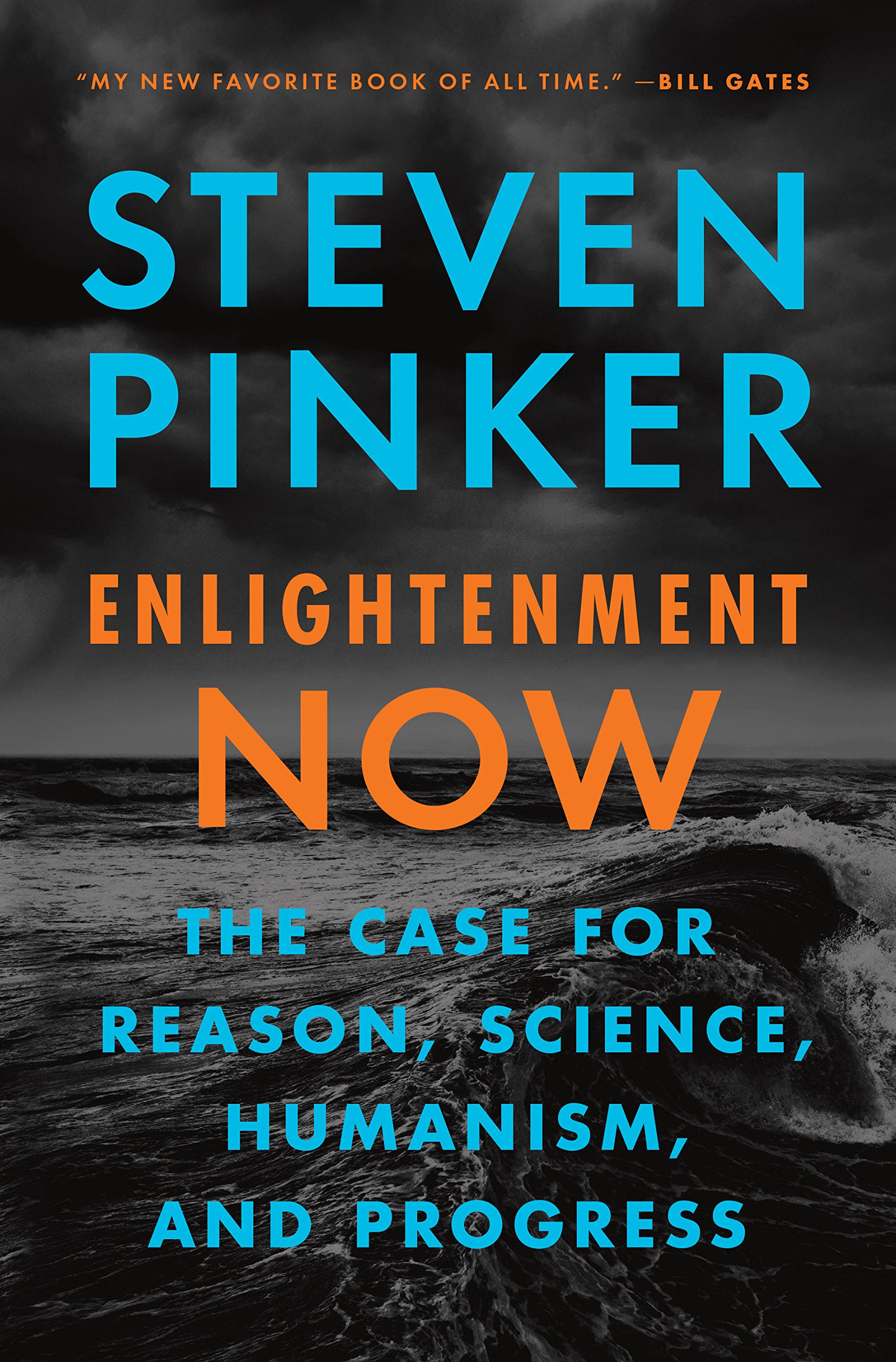A Brief Book Summary from Books At a Glance
By Steve West
About the Author
Steven Pinker is the Johnstone Family Professor of Psychology at Harvard University. He has won numerous prizes for teaching and research and has written many award-winning books. Dr. Pinker has often been named on lists of the world’s most influential intellectuals.
Introduction
In Enlightenment Now, Pinker argues that the world has been making exponential progress in all areas of human flourishing since the Enlightenment. He presents scores of graphs and statistical analysis to show that quality of life around the world has been improving enormously, and that there is no solid reason to believe this trajectory will be reversed. Pinker credits this progress to the Enlightenment values of science, reason, and humanism.
Note: We offer this Book Summary because of its wide interest. Our readers will want to see our Review of this book posted earlier this week.
Table of Contents
Part I: Enlightenment
Chapter 1 Dare to Understand!
Chapter 2 Entro, Evo, Info
Chapter 3 Counter-Enlightenments
Part II: Progress
Chapter 4 Progressophobia
Chapter 5 Life
Chapter 6 Health
Chapter 7 Sustenance
Chapter 8 Wealth
Chapter 9 Inequality
Chapter 10 The Environment
Chapter 11 Peace
Chapter 12 Safety
Chapter 13 Terrorism
Chapter 14 Democracy
Chapter 15 Equal Rights
Chapter 16 Knowledge
Chapter 17 Quality of Life
Chapter 18 Happiness
Chapter 19 Existential Threats
Chapter 20 The Future of Progress
Part III: Reason, Science, and Humanism
Chapter 21 Reason
Chapter 22 Science
Chapter 23 Humanism
Book Summary
Part I: Enlightenment
The ideals of the Enlightenment allow us to find reason for life and allow us to flourish. We have the rational capacity to seek ways to maximize growth and pleasure. We have science and the arts to aid our understanding of the world and the human condition. Since we can sympathize with others, we can work together to create a better world. Unfortunately, today we need to defend these obvious Enlightenment principles. The truth is that science and Enlightenment thinking have led us to incredible progress, and we should be optimistic and hopeful.
The Enlightenment principles are reason, science, humanism, and progress. Although there will always be problems, when we dare to think and understand we can solve difficult challenges. Reason is fundamental, since by it we judge opinions, sources, and claims. The triumph of science over superstition and magical thinking is so commonplace today that it’s hard for us to realize how huge the shift was when it was occurring. Before the Enlightenment, the world was unpredictable and terrifying because of ignorant superstition. Religious morality had led to wars, Crusades, and Inquisitions, so humanism was required for moral guidance. Humanists recognized that finding pleasure and avoiding pain were necessary for flourishing. Sympathy allowed people to help others flourish too. It was through reason, science, and humanism that progress was made. Cooperation in economy is necessary for flourishing, as is peace.
We do, of course, know much more than the first Enlightenment figures, and they would acknowledge this gladly. Three critical ideas we understand that they didn’t are entropy, evolution, and information. Entropy is statistical disordering, and we recognize that there are very few ways that life and happiness can exist. In certain cases, self-organization can occur in pockets of a system that is experiencing entropy. Evolution explains how some self-organizing structures can replicate and adapt through change. Information is the order that differentiates something from chaos or randomness. Information allows for the combat of entropic forces, since it harnesses energy. Brains are produced by information, and they are intelligent because of how the information is organized and interacts. Our brains work through computation and intelligence is tied to seeking and sorting out various goals and ends. Massive gains in flourishing occurred due to energy capture (e.g. agricultural production, industry, etc.). An important insight is that the universe is indifferent to us and entropic forces make life difficult, so often when bad things happen nobody is really to blame. Cooperation is best for everyone, and language allows society to function and grow in building positive community.
Today many are trying to reject Enlightenment principles and even blame them for our problems. Romanticism was a counter-Enlightenment movement. Religion is the most obvious one today. Another one sees people as components of a super-organism, like a more-important State. On the left, radical ecologists adopt the same type of view of the importance of people in the whole. Political ideologies on both sides of the left-right spectrum can function like religions. Numerous writes have been declaring the decline of society for centuries, as well as declaring the bleakness of the future. If the Enlightenment has not allowed us to make any progress for 250 years, it is not worth retaining. But to evaluate this, we need to actually look at the data.
Part II: Progress
Some intellectuals hate the idea of progress and that knowledge can actually make the world a better place. Many intellectuals and millions of people in the West believe the world is getting worse and the future is bleak. News focuses on what happens and is often negative—the positive things go unreported as non-events (e.g. nobody reports all the safe places where nothing happened), and good developments can take a long time to unfold. Exposure to constant negativity in news produces pessimistic outlooks, even when things are getting better. For example, as crime fell statistically for years, people said it was increasing. We need to learn to count and quantify. Still, despite statistical analysis, people still seem unwilling to acknowledge that things are getting better. Progress isn’t perfectly linear, but violence has been decreasing around the world. Psychologically, we focus more on negatives than positives and are. . .
[To continue reading this summary, please see below....]The remainder of this article is premium content. Become a member to continue reading.
Already have an account? Sign In
